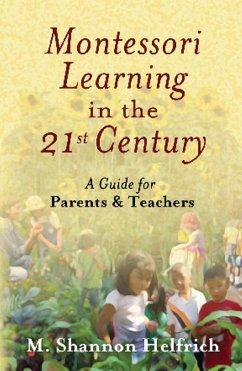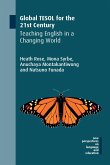This book fills a growing demand for contemporary books on Montessori education and how it applies to childhood learning and education in the 21st Century. Dr. Maria Montessori developed her theories and methods for educating young people more than a hundred years ago. Today, much of Dr. Montessori's empirical findings on how the childhood brain develops and works has now been proven accurate by recent neurological/ psychological studies on childhood learning.
M. Shannon Helfrich shares many experiences from her nearly 40 years as a Montessori teacher and teacher's trainer to help parents and Montessori teachers understand the factors that influence understanding and learning for children throughout their years of development. In a lay person's terms, the author explains how the brain develops and why interaction with the environment is essential at specific points in a child's development. She includes diagrams and photographs throughout the book.
The author also links Montessori's findings with the latest neuropsychological research, weaving back and forth between the centuries, making a strong case for the ongoing viability of a Montessori education in this brave new world. Helfrich offers many anecdotes from classroom experiences with children that support these findings.
In the beginning of her book, Helfrich asserts that Dr. Montessori was one of the great thinkers in the 20th century who changed the understanding of a child's nature regardless of race, class or culture, and ultimately, an evolved understanding of our humanness. This book confirms Dr. Montessori's pivotal role in the history of childhood education internationally.
M. Shannon Helfrich shares many experiences from her nearly 40 years as a Montessori teacher and teacher's trainer to help parents and Montessori teachers understand the factors that influence understanding and learning for children throughout their years of development. In a lay person's terms, the author explains how the brain develops and why interaction with the environment is essential at specific points in a child's development. She includes diagrams and photographs throughout the book.
The author also links Montessori's findings with the latest neuropsychological research, weaving back and forth between the centuries, making a strong case for the ongoing viability of a Montessori education in this brave new world. Helfrich offers many anecdotes from classroom experiences with children that support these findings.
In the beginning of her book, Helfrich asserts that Dr. Montessori was one of the great thinkers in the 20th century who changed the understanding of a child's nature regardless of race, class or culture, and ultimately, an evolved understanding of our humanness. This book confirms Dr. Montessori's pivotal role in the history of childhood education internationally.
Dieser Download kann aus rechtlichen Gründen nur mit Rechnungsadresse in A, D ausgeliefert werden.









